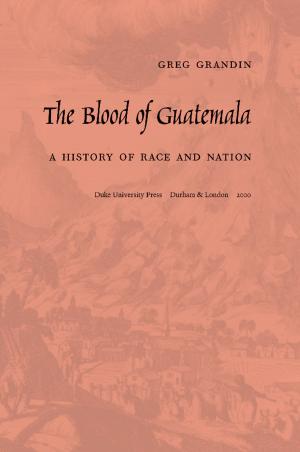The American Colonial State in the Philippines
Global Perspectives
Nonfiction, History, Asian, Southeast Asia| Author: | Gilbert M. Joseph, Emily S. Rosenberg, Paul A. Kramer | ISBN: | 9780822384519 |
| Publisher: | Duke University Press | Publication: | July 8, 2003 |
| Imprint: | Duke University Press Books | Language: | English |
| Author: | Gilbert M. Joseph, Emily S. Rosenberg, Paul A. Kramer |
| ISBN: | 9780822384519 |
| Publisher: | Duke University Press |
| Publication: | July 8, 2003 |
| Imprint: | Duke University Press Books |
| Language: | English |
In 1898 the United States declared sovereignty over the Philippines, an archipelago of seven thousand islands inhabited by seven million people of various ethnicities. While it became a colonial power at the zenith of global imperialism, the United States nevertheless conceived of its rule as exceptional—an exercise in benevolence rather than in tyranny and exploitation. In this volume, Julian Go and Anne L. Foster untangle this peculiar self-fashioning and insist on the importance of studying U.S. colonial rule in the context of other imperialist ventures. A necessary expansion of critical focus, The American Colonial State in the Philippines is the first systematic attempt to examine the creation and administration of the American colonial state from comparative, global perspectives.
Written by social scientists and historians, these essays investigate various aspects of American colonial government through comparison with and contextualization within colonial regimes elsewhere in the world—from British Malaysia and Dutch Indonesia to Japanese Taiwan and America's other major overseas colony, Puerto Rico. Contributors explore the program of political education in the Philippines; constructions of nationalism, race, and religion; the regulation of opium; connections to politics on the U.S. mainland; and anticolonial resistance. Tracking the complex connections, circuits, and contests across, within, and between empires that shaped America's colonial regime, The American Colonial State in the Philippines sheds new light on the complexities of American imperialism and turn-of-the-century colonialism.
Contributors. Patricio N. Abinales, Donna J. Amoroso, Paul Barclay, Vince Boudreau, Anne L. Foster, Julian Go, Paul A. Kramer
In 1898 the United States declared sovereignty over the Philippines, an archipelago of seven thousand islands inhabited by seven million people of various ethnicities. While it became a colonial power at the zenith of global imperialism, the United States nevertheless conceived of its rule as exceptional—an exercise in benevolence rather than in tyranny and exploitation. In this volume, Julian Go and Anne L. Foster untangle this peculiar self-fashioning and insist on the importance of studying U.S. colonial rule in the context of other imperialist ventures. A necessary expansion of critical focus, The American Colonial State in the Philippines is the first systematic attempt to examine the creation and administration of the American colonial state from comparative, global perspectives.
Written by social scientists and historians, these essays investigate various aspects of American colonial government through comparison with and contextualization within colonial regimes elsewhere in the world—from British Malaysia and Dutch Indonesia to Japanese Taiwan and America's other major overseas colony, Puerto Rico. Contributors explore the program of political education in the Philippines; constructions of nationalism, race, and religion; the regulation of opium; connections to politics on the U.S. mainland; and anticolonial resistance. Tracking the complex connections, circuits, and contests across, within, and between empires that shaped America's colonial regime, The American Colonial State in the Philippines sheds new light on the complexities of American imperialism and turn-of-the-century colonialism.
Contributors. Patricio N. Abinales, Donna J. Amoroso, Paul Barclay, Vince Boudreau, Anne L. Foster, Julian Go, Paul A. Kramer















